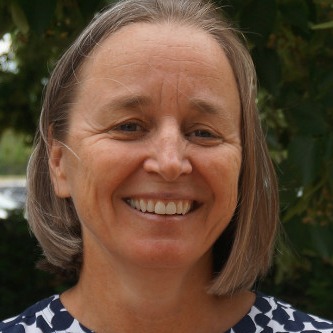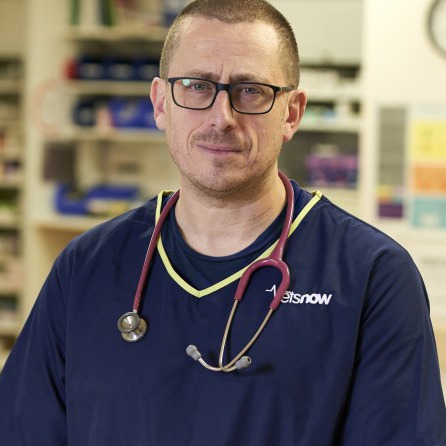Management of Specific Poisonings in Dogs & Cats
Species
Small Animal
Contact Hours
3 Hours - RACE Accredited
Early Booking Deadline
Sun, 01 October, 2023
Registration Deadline
Fri, 20 October, 2023
Language
English
Discipline
Emergency & Critical Care
Internal Medicine – Endocrinology, Haematology, Infectious Diseases, Parasitology & Oncology
Pathology - Clinical & Gross
Toxicology & Pharmacology
Industry Partners
Global

Veterinary Partners
Global


Recorded on: 16th November 2023
Panelists:
Adrienne Bautista DVM, PhD, DABVT - Royal Canin, USA
Thierry Francey DVM, DACVIM, DECVIM-CA - University of Berne, Switzerland
Daniel Lewis MA, VetMB, CVA, DACVECC, DECVECC, MRCVS - Vets Now 24/7 Emergency And Specialty Hospital, UK
Joris Robben DVM, PhD, DECVECC, DECVIM-CA - Utrecht University, Netherlands
Moderator:
Birgit Puschner DVM, PhD, DABVT - Michigan State University, USA
PANEL DISCUSSION DESCRIPTION
Worldwide, the most encountered small animal poisonings are caused by exposure to chocolate (methylxanthines), raisins/grapes, pain medications, and anticoagulant rodenticides. In addition, veterinarians have seen a steady increase in pets who have ingested marijuana in the past 5 years, with a greater than 400% increase in the US, Canada and the Caribbean over that time span. Changes in anticoagulant rodenticide regulation in many countries has also resulted in a shift away from anticoagulant-containing rodenticide baits to rodenticides containing α-chloralose, bromethalin, or cholecalciferol (vitamin D3).
An international panel of renowned multidisciplinary specialists consisting of emergency & critical care specialists, internists and toxicologists will discuss their approaches to the acutely poisoned, critically ill patient with special focus on chocolate (methylxanthines), marijuana, grapes/raisins, α-chloralose and acetaminophen (paracetamol).
This interactive exchange will include current knowledge about the effective use of decontamination procedures, the benefits and risks for intravenous lipid emulsion, continuous renal replacement therapy and blood purification techniques, the availability of antidotes for poisoned dogs and cats, and monitoring and supportive care for patients with respiratory depression.
Originally from North Carolina, Dr. Bautista moved to California to pursue her doctoral degree in physiology. After completing her PhD, she went on to obtain her Doctor of Veterinary Medicine from the University of California, Davis. Following her DVM, Dr. Bautista practiced small animal general and emergency medicine in the Sacramento area and served as the campus veterinarian for a local veterinary technology program. She returned to the University of California, Davis to complete a dairy food safety and security fellowship and a residency in clinical veterinary toxicology at the California Animal Health and Food Safety Laboratory. Dr. Bautista worked briefly as an associate toxicologist for the California Environmental Protection Agency before returning to general practice for several years. A Diplomate of the American Board of Veterinary Toxicology, she has authored numerous journal articles, book chapters, and lay articles. Her experience in research, clinical practice, and toxicology brings a unique perspective to her current role as a Scientific Communications Veterinarian for Royal Canin.
Prior to coming to MSU, Puschner was professor and chair of the Department of Molecular Biosciences in the School of Veterinary Medicine at University of California, Davis. She joined the UC Davis faculty after completing her residency in veterinary toxicology in 1999. She received her doctorate of veterinary medicine and PhD from Tiermedizinische Fakultat, Ludwig-Maximilians-Universitat Munchen, Germany and completed a postdoctoral fellowship with the University of Michigan School of Medicine. Puschner has a true passion for teaching, research, and working with faculty to promote excellence in veterinary education and the profession.
Following graduation in 1995 from The University of Cambridge, Dan worked in mixed practice for five years, where he gained the RCVS Certificate in Veterinary Anaesthesia. In 2000, he moved to Petmedics, a large hospital-based emergency clinic in Manchester, where he remained for eight years.
In 2008 Dan embarked upon a residency at The Royal Veterinary College, obtaining his Diploma in Emergency & Critical Care in 2011. Following this, Dan spent a period in charge of the ICU at Bristol vet school before returning to Petmedics. Dan joined the Vets Now 24/7 Emergency and Specialty Hospital, Glasgow in January 2015 as part of our existing ECC team and has since been promoted to National ECC Lead.
Dan is interested in all aspects of critical care, but particularly in septic patients and poorly cats.
Joris Robben qualified from the Faculty of Veterinary Medicine of the Utrecht University in 1988. After his graduation, he performed a Supplementary Doctoral Examination at the School of Veterinary Medicine of the University of Pennsylvania. After a short period in private practice, he completed his residency in Companion Animal Internal Medicine in 1994 at the Department of Clinical Sciences of Companion Animals of the Utrecht University. Since 1994, he has been head of the ICU for Companions Animals at Utrecht. He finished his PhD, entitled “Insulinoma in dogs: diagnostic aspects and functional characteristics”, in April 2004. In 2008 Joris joined for one year the staff of the Small Animal ICU at the Veterinary Medical Teaching Hospital of the Faculty of Veterinary Medicine, UC Davis. Joris Robben has been a Diplomate of the European College of Veterinary Internal Medicine - Companion Animals since 1997. From 2008 till 2011 he has been President of the European Veterinary Emergency and Critical Care Society. Since 2014 Joris is a Diplomate of the European College of Veterinary Emergency and Critical Care. He was President of this College from 2018 till 2021. Currently, Joris is Associate Professor in Emergency and Intensive Care Medicine at Utrecht. His special interest is the impact of ICU design and organisation on patient care and outcome.
Professor and Internal Medicine Section Head, The University of Berne Dr. Francey graduated from the University of Berne, Switzerland in 1988. After a Residency in Small Animal Internal Medicine (University of Berne and Louisiana State University) he specialized further in nephrology with a Fellowship in Renal Medicine and Hemodialysis at the University of California Davis. He stayed in Davis as a Lecturer in Internal Medicine and Nephrology until 2005 before coming back to Switzerland. He is currently Head of the Division of Small Animal Internal Medicine at the University of Berne and he pursues his main interests in the clinical manifestations of uremia and the use of advanced renal therapies in small animals.
Qualified Vet
Online Panel Discussion
USD 95.00
Veterinary Student (Requires proof of status)
Online Panel Discussion
USD 40.00
Intern/Resident (Requires proof of status)
Online Panel Discussion
USD 75.00
Vet Nurse/Vet Tech (Requires proof of status)
Online Panel Discussion
USD 75.00
If the options you are looking for are unavailable, please contact us.
No tax will be added unless you are a UK taxpayer
Choose currency at checkout



















